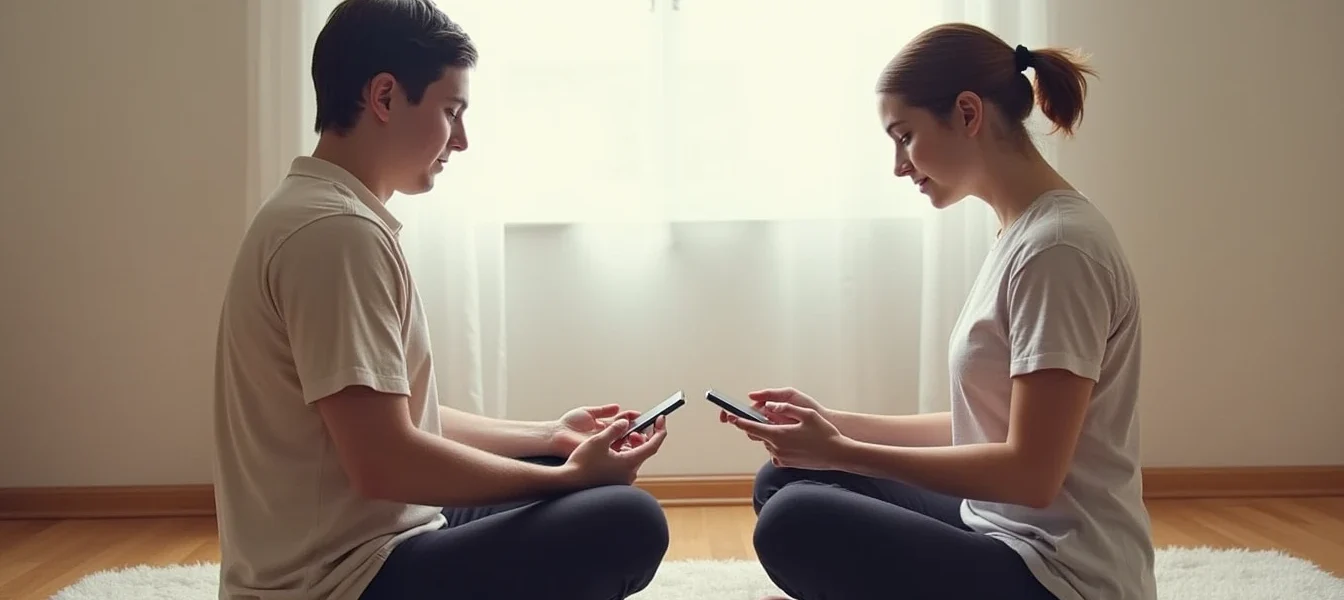The Role of Stress Reduction in Relationship Communication
Stress reduction is one of the primary benefits derived from using meditation apps, which can profoundly impact relationship communication. Chronic stress often leads to emotional reactivity, where partners may become more sensitive and less patient with each other. Meditation practices, facilitated by these applications, aim to lower cortisol levels—often referred to as the “stress hormone”—and promote a state of relaxation that is conducive to open and constructive dialogue. By consistently engaging in meditation sessions offered through these apps, individuals can create a mental buffer against the immediate triggers that exacerbate conflicts.
Moreover, stress reduction not only mitigates negative emotions but also enhances positive interactions between partners. Meditation encourages mindfulness, which allows individuals to be fully present during conversations, avoiding distractions or preoccupations that might otherwise interfere with effective communication. This heightened state of attentiveness can lead to more meaningful exchanges and a greater sense of connection. For instance, when one partner shares something personal or challenging, the other is better equipped to listen without judgment, fostering an environment of trust and mutual understanding.
It’s important to recognize that stress management through meditation apps is not merely about individual well-being; it also has significant implications for relational health. Studies have shown that couples who meditate together experience lower levels of relationship distress compared to those who do not engage in such practices. Shared meditation sessions can serve as a bonding activity, reinforcing the emotional ties between partners while simultaneously providing each partner with tools to manage their stress individually. The collective reduction of stress within a couple can lead to more harmonious and supportive interactions.

Enhancing Empathy Through Meditation Practices
Empathy plays a crucial role in effective communication within relationships, and meditation apps offer various techniques that can help partners cultivate greater empathy for one another. By fostering an increased awareness of their own emotional states and those of others, individuals using these applications can become more attuned to the needs and feelings of their significant other. This heightened sensitivity is essential for understanding each partner’s perspective and responding in a way that demonstrates genuine care and consideration.
One of the key ways meditation apps enhance empathy is through guided visualization exercises designed to simulate different emotional experiences. These sessions often encourage individuals to imagine themselves in various scenarios or roles, prompting them to empathize with others’ emotions as if they were their own. Such practices can be particularly beneficial for couples who may have experienced communication breakdowns due to misunderstandings or a lack of mutual understanding. By engaging in these exercises together, partners can develop a deeper appreciation for each other’s emotional landscapes and learn how to communicate more compassionately.
Additionally, meditation apps typically incorporate mindfulness techniques that focus on active listening—another critical component of empathetic communication. Mindful listening involves fully concentrating on what the speaker is saying without formulating responses or judgments in advance. This practice can significantly improve couples’ conversations by ensuring each partner feels heard and valued. Over time, as both partners engage in mindful listening exercises through these apps, they may notice a marked improvement in their ability to truly understand and resonate with one another’s thoughts and feelings.
Promoting Mindfulness for Improved Daily Interactions
Mindfulness is a central feature of most meditation apps, and its application can greatly enhance daily interactions within relationships. By training the mind to stay present and engaged in the moment, individuals using these applications can significantly improve their ability to engage meaningfully with their partners during everyday exchanges. This enhanced awareness helps prevent distractions or autopilot behaviors that might otherwise dilute communication quality.
Mindfulness meditation techniques often involve focusing on breathing patterns, bodily sensations, and immediate environmental stimuli as a way to anchor one’s attention in the present moment. When applied to relational contexts, these practices can translate into more attentive and engaged listening during conversations. Partners who are fully present and mindful are better equipped to pick up subtle cues—such as tone of voice or body language—that might otherwise go unnoticed. This heightened sensitivity can lead to richer and more nuanced interactions, fostering a deeper connection between partners.
Moreover, mindfulness meditation encourages individuals to observe their thoughts and emotions without judgment, which is particularly beneficial for navigating conflicts within relationships. Many relationship challenges arise from misinterpretations or emotional reactions that stem from unexamined feelings. By adopting a mindful approach, partners can respond thoughtfully rather than reactively in stressful situations. This not only reduces the likelihood of escalating disagreements but also promotes healthier patterns of communication where both parties feel heard and respected.
Integrating Meditation into Daily Routines for Better Communication
Integrating meditation practices into daily routines is an essential step toward leveraging their benefits for relationship communication. Regular use ensures that both partners can consistently benefit from stress reduction, increased empathy, and enhanced mindfulness without relying solely on sporadic or occasional sessions. Establishing a routine might involve designating specific times each day when both individuals engage in guided meditations together or individually.
One effective strategy is to incorporate brief meditation breaks throughout the day, especially during periods of high stress or heightened emotions. These short, focused sessions can be particularly beneficial for partners who have busy schedules and may not always find time for longer meditation practices. By committing just a few minutes each day, couples can maintain their connection and practice skills that promote effective communication.
Another approach is to integrate meditation into morning or evening routines, creating opportunities for shared reflection or gratitude exercises. These sessions can serve as a grounding activity for the day ahead or as a way to wind down after stressful interactions. By setting aside dedicated time for mindfulness practices, couples not only enhance their own well-being but also reinforce the importance of maintaining open lines of communication within their relationship.
Choosing the Right Meditation App for Couples
Selecting the right meditation app is crucial for ensuring that both partners benefit from its features and can effectively integrate them into their daily routine. The market offers a wide range of options, each with unique approaches and offerings designed to cater to various needs. Some apps focus on general well-being and stress reduction, while others are specifically tailored to enhancing relationships through guided meditations aimed at fostering connection and understanding.
When choosing an app, it’s essential to consider the specific goals you and your partner have for improving communication within your relationship. For example, if emotional regulation is a primary concern, look for apps that emphasize techniques like loving-kindness meditation or body scan practices. Conversely, if the focus is on deepening empathy and understanding, consider apps that offer exercises in perspective-taking or role-playing scenarios designed to simulate different emotional states.
Another important factor to consider when selecting a meditation app for couples is compatibility with daily routines. The ideal app should be user-friendly and easily accessible at times convenient for both partners. Some apps allow users to customize their sessions based on length, focus area (e.g., stress relief, mindfulness), or even partner preferences. Additionally, many modern meditation apps offer features like reminders or progress tracking, which can help couples stay consistent in their practice over time.
Ultimately, the best meditation app for enhancing relationship communication will be one that not only offers relevant and effective practices but also fosters a sense of shared commitment between partners. Whether it’s through guided meditations specifically designed to improve empathy or mindfulness exercises aimed at reducing stress, the right app can provide couples with the tools they need to communicate more effectively and build stronger connections.









